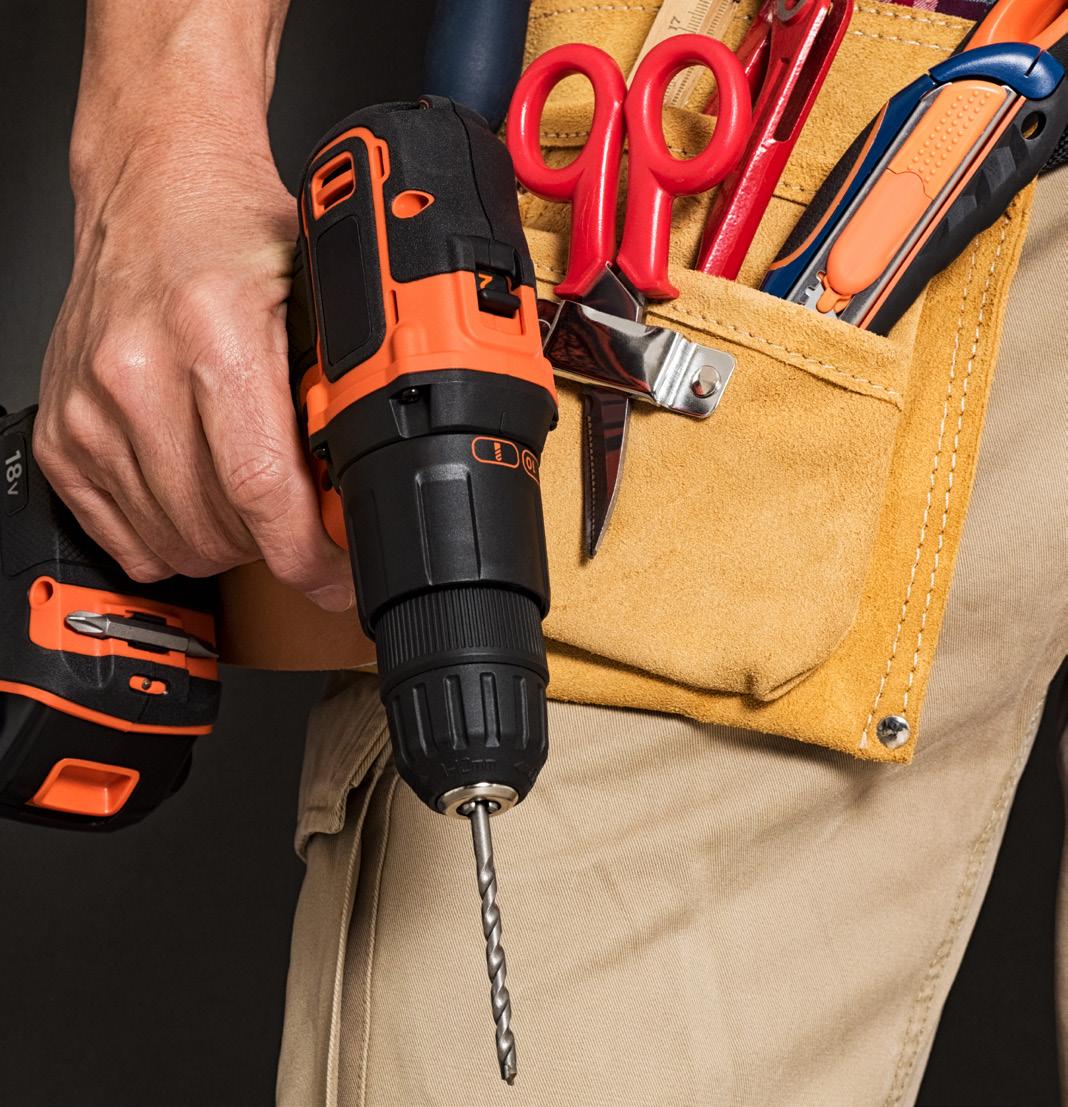
17 minute read
Matus
High-Class Hardware
Matus is a cut above when it comes to wholesale hardware quality, the company continually striving to improve on its products, customer engagement and technological proficiency
The recent hardships facing South Africa have been well documented. The country’s political transition since 1994 is renowned as one of the most remarkable political feats of the past century, yet, from an economic standpoint, overall progress has slowed in the past half-decade.
The South African economy has failed to grow by more than two percent in any year since 2014, and once population growth is factored in, per capita growth has been close to nil throughout this entire period. There’s always a silver lining, however. Within this climate, certain businesses have shown incredible adaptability and proactivity in overcoming numerous hurdles, local tool and hardware wholesaler Matus standing as a prime example of the ingenuity that can be derived from the need to make the best of a somewhat stagnant situation.
“South Africa’s a tough market to be operating in at the moment, no question,” explains Sibusiso Khumalo, the company’s Product and Marketing Executive. “The industrial goods sector has become increasingly saturated, making it harder and harder to stand out from the crowd. “Amidst some customers battling through financial hardships, we understand that people will sometimes opt for cheaper options available on the market. In order to strengthen our differentiation, we have been working hard to ensure that we continue to offer great service at a fair value across our entire product range.”
So how exactly does Matus set itself ahead of the field? In the eyes of Khumalo, this is down to the diversity and quality of the company’s offering coupled with a unique culture.
“First, our products,” he states. “Not only do we offer customers our own brand tools, but those of our exclusive partner brands and non-exclusive partner brands as well. The choice we provide is honestly unmatched in the industry and, regarding product quality from our compressors to homologation on dust masks, the quality and compliance of our entire range is of the highest standard.
“Second, we are part of the Bidvest Group, benefitting from strong backing from one of South Africa’s leading corporations. Through this, we’re able to strike a balance between maintaining Matus’s originally family-led values and improving our performance year after year.
THE WHO, WHAT & WHERE OF MATUS
Inaugurated in 1942 by brothers Lukie and Sam Matus, the organisation has risen to become the number one trusted tool and hardware partner serving the industrial, construction, agricultural, retail DIY and mining sectors with its vast and growing range of products.
Owned by the Bidvest Group, the company today serves not only SA but equally Lesotho, Namibia, Swaziland, Botswana and other countries across the Southern African region, headed up by newly appointed CEO Robin Coen.
OWN BRANDS: MTS, MAT-Weld, MAT-Safe, MAT-Air, Fox, Fascor and Mobi-Jack.
EXCLUSIVE BRANDS: Euroboor, Freemans, Groz, HiKOKI, Kendo, Stahlwille, Sykes-Pickavant and more.
VISION: To be the supplier and distributor of choice for tools, hardware and related equipment to the DIY and industrial markets.
MISSION: To build mutually beneficial partnerships with customers, staff and suppliers.
“That combination keeps things fresh and exciting. What keeps us up at night is not a focus on price – it’s thinking about how to always provide greater value to our customers and remain sustainable.”
MEETING MARKET NEEDS
This strategic emphasis on continual improvement is best reflected by an extensive array of diversified investments that the company has been pursuing of late.
Digital transformation is one such category within this, its efforts concentrated on leveraging critical technologies such as data analytics in order to better be in touch with the demands of its customers and end users.
“How can we better understand customer behaviour and increase customer engagement by looking at digital activities? These are the sorts of areas we’re exploring,” Khumalo explains.
SOCIALLY RESPONSIBLE
Donating products to schools, particularly those serving South Africa’s underprivileged youth, is just one way in which Matus focusses on corporate social responsibility.
“We also sponsor some of these colleges,” Khumalo reveals. “The idea is to invest in programmes that are actually meaningful rather than just couriering in money and walking away, particularly in the hometowns of our staff.
“We recently spent the entire day with some school children, for example, providing them with presents and toys, and donated medical support equipment for those suffering with disabilities.” PREMIUM TOOL SOLUTIONS. SINCE 1862.

“Because we’re a wholesale distributor, it can be tricky for us to create direct channels with the end users. But these technologies will help us – we recognise that the best way to keep customers coming back to us is when the end user continues to specifically request our products.” As part of its attempts to create such a dynamic strategy, Matus continues to work with colleges and schools from across South Africa by training and donating products to them in some cases. In doing so trainee industrial professionals familiarise themselves with its tools and brands, which thereby become the brands of choice from the outset. Further, the enterprise is constantly looking to plug any gaps in the market. “Within our MAT-Weld range we recently released a 230-amp welder, offering this at the same price point as a 200-amp model,” Khumalo states. “And we’re constantly reviewing our packaging to ensure it’s as attractive and informative as possible.”
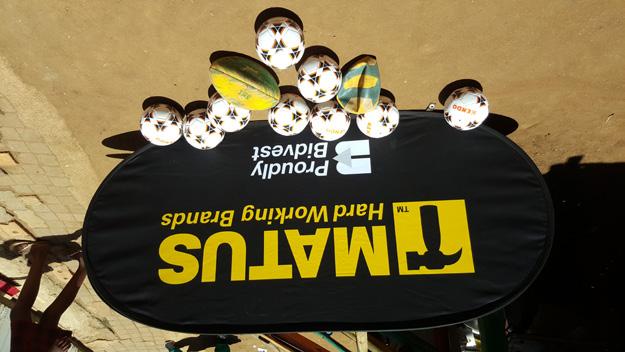

STAHLWILLE
Professional Tool Solutions. Made in Germany!
For over 150 years, the name STAHLWILLE has been a byword for innovative premium handtools that are »Made in Germany«. With its intelligent torque technology and tool systems, high-grade tightening tools and individual solutions for tool storage in a modern design, STAHLWILLE continues to redefine standards.
The company unites all the outstanding features of traditional German forging, state-of-the-art production techniques and digital technologies.
Successful as these efforts have been, Matus can’t claim all the credit for its recent strides. And indeed it doesn’t, the Product and Marketing Executive pointing to the vital role of its employees, partners and suppliers. “Between our experienced, knowledgeable staff who have been here for 20 or even 30 years in some cases and the new talent that we’re bringing in all the time to keep new ideas flowing, we have a fantastic mixture in our workforce,” he affirms. “Likewise, our correspondence with customers is equally important. In some surrounding countries, for instance, we have an amazing relationship with local partners – distributors which helps us in spreading our products across the country.
“I think this is one of our strengths. We pay a lot of attention to these clients as they allow us to deliver stock to central locations before selling them throughout each respective region.”
PREMIUM TOOL SOLUTIONS. SINCE 1862.
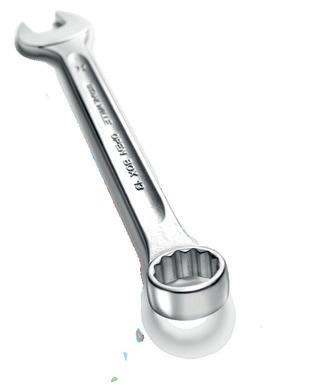
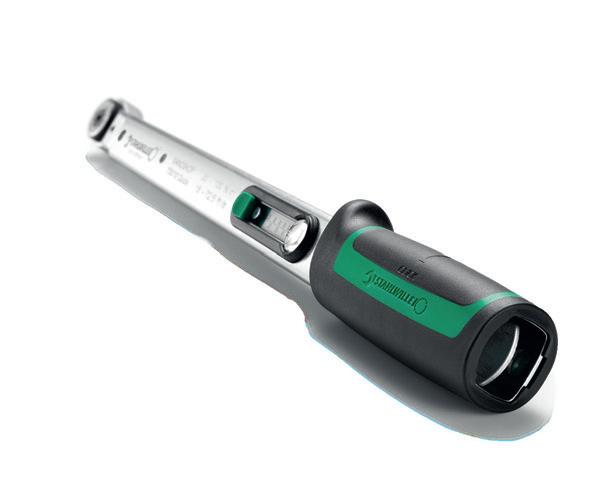
IMPROVING THE PLATFORM FOR GROWTH In support of the latter, Matus has created a network of five sizeable distribution centres throughout South Africa to make life easier for its customers.
“We’ve seen that these companies often don’t have the capital to hold large amounts of stock, but they still want to cater to the needs of their own customers on demand,” Khumalo comments. “These centres allow us to be closer to our customers, which helps them better meet their own clients’ needs.”



Moving forward, these distribution centres will form a large part of the organisation’s continual improvement efforts.
At its site in Durban, the firm is undertaking a major new build initiative aimed at improving efficiencies across picking, packing and the moving of products that is hoped to be complete in August 2020. Once successful, the company will then begin similar initiatives at its flagship Johannesburg hub.
“Like every company we want to grow, and these facilities upgrades or new builds are a major part of that process,” Khumalo states, ending our conversation on an optimistic note as his attention turns to the future.
“For the very same reason, we’ll continue to enhance our technologies, our customer relationship management systems, our use of intelligent data, and look for new opportunities both in South Africa and beyond.
“The support we get from Bidvest,

our internal stakeholders and our partners places us in good stead to achieve in each of these areas. We want to become more relevant in new markets and are certainly excited for the coming years.”
MATUS Tel: +27 11 681 9440 info@matus.co.za www.matus.co.za
To round off each issue, we ask our contributing business leaders for their views on the same question
What is your approach to recruitment and staff development?
Noel Mabuma CEO, CMC Motors Group Ltd “CMC endeavours to incorporate employees of varying gender, age, religion, race, ethnicity, cultural background, sexual orientation, religion, languages, education and abilities in its sourcing agenda in order to not only improve on its reputation and promote inclusion, but to enhance its competitive advantage.
“This will be achieved through greater innovation – new ways of doing things, increased creativity associated with millennials, and better decision making. Researchers have found that when diverse teams make business decisions, they outperformed individual decision-makers up to 87 percent of the time.
“Moreover, we have benefited from a variety of different perspectives arising from diverse cultural backgrounds through higher employee engagement, improved talent acquisition rates and reduced employee turnover, where employees feel accepted and valued.”
Stephane Lopez General Manager, NAS Airport Services Ltd “Our staff are our most important asset and we promote our extra miles mindset through different award ceremonies that assist in talent retention. We are also developing team building events, which can create real synergies and team spirit, and view external and internal training sessions as essential to the personal development of our team members. “I am a true believer of promoting from within. As managers, we have a mandate to continue building NAS for tomorrow by helping our team members to realise their full potential.”
Cedric Froneman Marketing Executive, Johnson Crane Hire “Johnson Crane Hire is a learning organisation and has various staff training initiatives overall. The company is a registered training institute for mobile crane operators in terms of the South African Occupational Health and Safety Act of 1994.
“Our Broad Based Black Economic Empowerment (BBBEE) initiative also includes the Learnership Programmes, which is a formal qualification in lifting machine operations.”
Ruud Walgaard CEO, Reload Logistics “We offer our staff opportunities to work across Southern Africa and are proud to see our Zambian warehousing operators and specialists taking the chance to be sent out to Malawi, South Africa, Tanzania and Mozambique. This provides them with exposure and is an advantage over our competitors as our employees are able to really understand the full supply chain, not just those in their countries of origin. “Further, we constantly promote training and learning in order to maintain our level of excellency and retain key talent.”

Are you a CEO/Director with a company story to tell? Contact Africa Outlook now!
Encouraging impactful financial protection...
NATIONAL INSURANCE COMMISSION GHANA
ENCOURAGING IMPACTFUL FINANCIAL PROTECTION
Justice Ofori, Commissioner
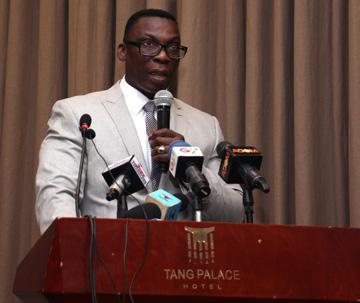
2 | Africa Outlook issue 81
FINANCE
Inspiring insurance confidence in the face of COVID-19

Ghana’s National Insurance Commission (NIC) is changing the negative perceptions around indemnity, ensuring providers are delivering meaningfully reliable services to policyholders and helping to develop a sense of trust as the underlying mission of every insurance entity in claims payment
Writer: Jonathan Dyble | Project Manager: Sam Love

compete on pricing but on the quality of their services, which is remarkable,” he states. “We’ve been promoting a sound system, thus shaping the needed element of insurance – trust!” Trust is everything when it comes to the financial services sector; it has to be earned and nurtured, and NIC having recognised this, is tirelessly pursuing an endless list of impactful initiatives that are helping to both improve industry performance and change public perceptions about insurance.
First, it recently announced a new, more flexible minimum capital requirement for all insurance companies – a move that has allowed industry players to improve their focus on and at the same time prioritise policyholders’ interests.
“We’ve done this by providing an adequate period within which regulated entities are expected to meet the minimum requirements with less stress,” Ofori states. “It is instructive to note that there seem to be quite a number of insurance companies who are unable to live up to expectations by way of efficiency and effectiveness, and this has been dealt with, instilling the much needed confidence in insurance.” The Ghanaian insurance landscape has become more exciting as there is a new wind of change regarding our approach to the regulation, supervision and general operational standards of industry players.
“We are making insurance a matter of importance to people rather than a matter of compulsion and have gathered adequate momentum in our exponential drive to achieving an improved insurance penetration rate. We are poised to stop at nothing with the resolve to ensuring that we make greater inroads within the insurance space.”
It’s been 18 months since I last spoke with Justice Ofori, Commissioner of Insurance at Ghana’s insurance regulatory body and it’s refreshing to say a lot has changed for the better over the period.
The country’s insurance industry has experienced what can only be described as a drastic transformation, Ofori hinting reference to recent strides and achievements chalked by the Commission in collaboration with other key stakeholders.
“We have created and continue to improve on an environment where insurance companies no longer
Africa Outlook issue 81 | 3 “The NIC is also partnering with the Ghana Education Service (GES) in order to provide basic insurance education in second cycle institutions in a youth-focussed approach, the launch of which took place in January 2020,” he adds.
“Our relationships with donor agencies such as GIZ and AGRA similarly continue to yield the needed results.” PURPOSED TO PROTECT Without question, the work of NIC in partnership with each of these entities has begun to turn the tide on poor practices in Ghanaian insurance and also creating awareness to the remotest parts of the country using empirical research results.
Regulated entities no longer have any choice but to fine tune their operations and ultimately deliver meaningful services to policyholders, thus developing the long-needed sense of trust and rising demand in the process. The Training of Trainers (ToT) seminars for Officers of the Police MTTD have commenced in earnest to ensure a successful enforcement of the MID in all 16 Regions of the Nation. And the NIC itself has never been in a better position to make greater progress as its footprint now spans seven geographical regions owing to a recent decentralisation policy of its supervision and regulatory mandates, resulting in the establishment of three additional offices in Koforidua, Cape Coast and the Sunyani areas, bringing the number outside Accra to seven. “We’re no longer operating on a basis of ‘long-talk’ from Accra anymore,” Ofori states. “These offices are a fully-fledged part of NIC’s functions and deliver on supervision, regulation and take complaints and compensation issues very seriously as we draw closer to policyholders and prospective ones.”
Likewise, it has also established a research Unit in order to better assess industry performance, undertaking various empirical and market research programmes with the view to further increasing the overall penetration rate. Indeed, this is the organisation’s ultimate ambition moving forward. In the next year, it hopes to have created a 70 percent digitised national insurance system with marine cargo and hull insurance digitisation in the offing, awareness rates nearing 90 percent, and a more financially agile industry that will enhance confidence in insurance among members of the general public.
Why? Well, for Ofori, it comes down to the simple fact that insurance is the best way to protect finances, lives and businesses.
“The poor need insurance to protect the little they have and continue living as comfortably as possible, as do the rich,” he affirms. “It is risky to deceive ourselves into thinking that insurance premiums are high, rather than being motivated by the relief that will be there in the event of mishaps. Xxxxxx Qui restias miligenihil modis alique verum eos ilis nonsequi qui corpore rovitatem denducia NATIONAL INSURANCE COMMISSION GHANA
10 | Africa Outlook issue 81
See page 22 See page 36
FINANCE
ABOUT THE NIC
The National Insurance Commission was established under Insurance Law 1989 (PNDC Law 227) and now operates under Insurance Act 2006 (Act 724). The objective of the Commission is to ensure the effective administration, supervision, regulation and control of insurance businesses in Ghana. NIC is mandated to perform a wide spectrum of functions including licensing of entities, setting of standards and facilitating the setting of codes for practitioners. The Commission is also mandated to approve rates of insurance premiums and commissions, provide a bureau for the resolution of complaints and arbitrate insurance claims when disputes arise. Other responsibilities include the provision of recommendation to the sector Minister for policy formulation, supervision of practitioners, enforcement of compliance and public education. The development of strong relationships with regulators from other countries and international bodies such as the International Association of Insurance Supervisors (IAIS) and ensuring the conformity of practitioners to internationally accepted standards are also under its umbrella. The enactment of Act 724 was a major milestone in the development of a robust insurance regulatory environment, empowering and granting adequate powers to the Commission. Together with several other initiatives in the past decade, this law and in turn the Commission provide a strong regulatory framework for Ghana’s insurance industry. VISION: To be a model insurance services regulator in Africa. MISSION: To be an effective custodian of public interests, ensuring financial soundness of insurance companies and prompt attention to grievances of policyholders and interested third parties. To act as the catalyst for the development, robust growth and prosperity of Ghana’s insurance industry. CORE VALUES: Integrity, transparency, accountability, responsiveness, accessibility, innovation.
www.prudential.com.gh
Tobetheworld’smosttrustedLifeInsurer. Builton Purpose
AlwaysListening.AlwaysUnderstanding.
@Prulifegh PrudentialLifeGhana@Prudentialgh
PartofPrudentialplc (UK)
0302208877 TalktousaboutLifeInsurance
“If one perceives insurance as being expensive, then we should begin to think of the fact that there is a reason we leave our house doors locked before going to sleep, even if we’ve never experienced a break-in before. “The global COVID-19 pandemic is the perfect example of why insurance is important. It’s crucial that we take the necessary safety precautions, washing our hands and using alcohol-based sanitisers to curb its spread, but for those affected by it and falling upon poor health or hardships, insurance can be there to help pick up the pieces.” Vice-President of the Republic of Ghana, Alhaji Dr Mahamudu Bawumia unveiling the Digitization of Insurance
NATIONAL INSURANCE COMMISSION GHANA Tel: +233 302 238300 / 238301 info@nicgh.org www.nicgh.org
Africa Outlook issue 81 | 11
National Insurance Commission Ghana has told its story.

Now, why not tell yours? Our monthly magazine Africa Outlook is essential reading for business executives wanting to keep up with the latest in global news and trends affecting African businesses across all industries. With a monthly coverage of over 185,000 readers, your company can take advantage of exposure in Africa Outlook with a FREE article and FREE digital brochure, as well as access to further digital and print-based marketing tools that could transform your business. To share in this unrivalled opportunity, contact one of our project managers today!

Outlook Creative Services
Complementing the production of Africa Outlook, Asia Outlook and EME Outlook magazines, Outlook Publishing’s award-winning in-house team is now utilising these same specialist production skills to offer a full and bespoke range of editorial, design and marketing services via its new Outlook Creative Services division.
For more information on how we can work with you in providing a plethora of completely flexible and customisable production services, please visit: www.outlookpublishing.com/creative-services
DESIGN: Stephen Giles +44 (0) 1603 959 656 steve.giles@outlookpublishing.com Devon Collins +44 (0) 1603 959 661 devon.collins@outlookpublishing.com

E D I TO R I A L : Tom Wadlow +44 (0) 1603 959 657 tom.wadlow@outlookpublishing.com Jonathan Dyble +44 (0) 1603 959 660 jonathan.dyble@outlookpublishing.com










